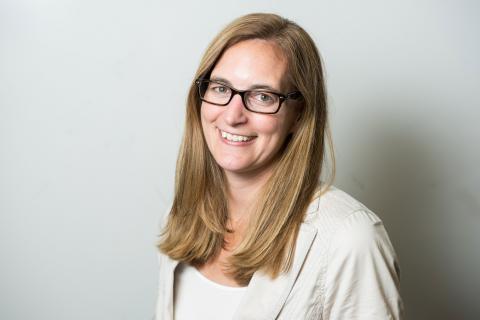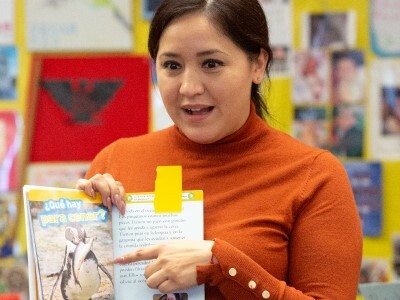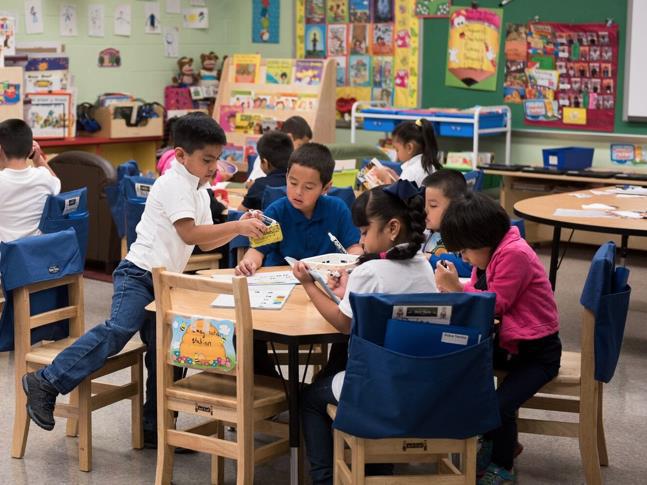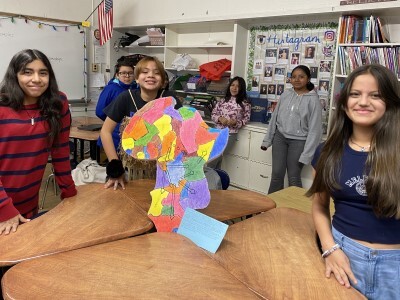A Personalized Learning Approach to Professional Development at Education Achievement Authority
Topics
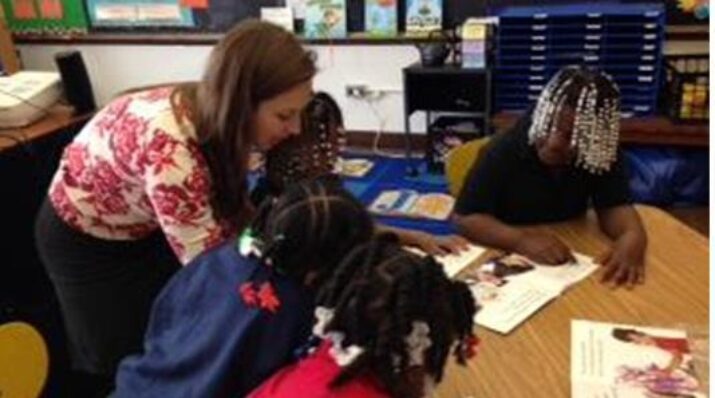
Educators are the lead learners in schools. If they are to enable powerful, authentic, deep learning among their students, they need to live that kind of learning and professional culture themselves. When everyone is part of that experiential through-line, that’s when next generation learning thrives.
At Michigan's Education Achievement Authority, teachers experience personalized learning with a twist: sometimes, they're the students.
The Education Achievement Authority of Michigan calls the academic model employed at their schools “student-centered learning.” Perhaps their professional development for teachers—the subject of the latest Next Gen Tools brief—could be categorized as “teacher-centered professional learning.”
EAA joins the growing list of school districts and charter organizations that are reimagining professional learning for educators, as my colleague Stef Blouin blogged about last week—she was drawing on the personalized, self-directed, ongoing, collaborative, and embedded professional development at Matchbook Learning, Intrinsic Schools, Alpha Public Schools, and Horry County Schools. USC Hybrid High’s Oliver Sicat offered his perspective of personalized professional development in his recent blog at BlendMyLearning.com.
As I mentioned last week in a post about pre-service teacher preparation, there are few teachers who have been trained to work in personalized learning schools. So professional learning for personalized learning takes on a critical importance for teachers to be successful in these new kinds of schools.
EAA uses the same principles of learning it applies in its schools to the professional learning of its teachers. To help teachers in its blended, mastery-based, personalized classrooms, EAA delivers a professional development course through the Buzz platform (next week, we will publish a Next Gen Tools brief on Buzz, detailing how EAA partnered with Agilix and School Improvement Network to develop the personalized learning platform).
This approach not only provides the content to help teachers facilitate a student-centered learning environment, it walks them through the online, personalized learning playlist in the same way a student experiences it. As Mary Esselman, the Deputy Chancellor of EAA, says:
“We put them right in our platform as a student, paralleling what students are going through. This is absolutely critical, because it develops habit of mind around a blended model.”
Furthermore, EAA’s schools are all turnaround schools—they were among the lowest performing in Michigan before the turnaround model was implemented—which means many students have a lot of catching up to do. The professional learning experience positions teachers to help students take advantage of the mastery-based model: to make as much progress as their pace—and the support and instruction they receive from their teachers—will allow.
- Read Next Gen Tools: EAA Professional Development by Jodi Lewis
- Learn more about EAA’s student-centered learning model at Nolan K-8 School
The ongoing Next Gen Tools series describes the innovations that breakthrough model developers—in K-12 and higher ed—need to create in order to make their completely redesigned academic and organizational models function effectively. View all published briefs in the series.
Update
September 14, 2016 - Since 2014, the team at NGLC has grown ever more aware of the critical need for personalized professional development in next gen schools; indeed, successful implementation of personalized learning requires a complete reimagining of professional learning for teachers. We've assembled a complete set of current resources on a new Professional Learning "challenge" page to help educators understand what next gen professional learning looks like, what it requires us to rethink, how schools and partners are providing next gen learning opportunities for educators, and examples and tools for implementation. In 2015, we reported on a variety of summer professional learning experiences offered by NGLC schools and regional partners. Here are just a handful:
- 5 Best Practices For Reimagining Professional Learning This Year
- Mastery Design Collaborative supports school redesign in Oakland
- Next Gen Learning at Summit Basecamp
- Chicago Schools Are Rethinking K-12 Staffing and Scheduling
- “Telling Your Story” at CityBridge’s Summer Design Institute
- Thrive's Next Gen Learning Symposium
And for the past eight months, we have been interviewing NGLC breakthrough school model grantees to learn more about their teachers' needs and the next gen strategies they are using to meet those needs. We've started sharing some of what we are learning with more to come:
- Next Gen Tools: Hiring for Mindset - Innovation brief sharing the strategies and tools of hiring for mindset used by Da Vinci Schools & Generation Schools Network.
- Personalizing Professional Learning for Teachers as Your Organization Grows - Cornerstone Charter Schools shares strategies and resources to personalize the professional learning of 75 teachers as they adopt blended learning.

